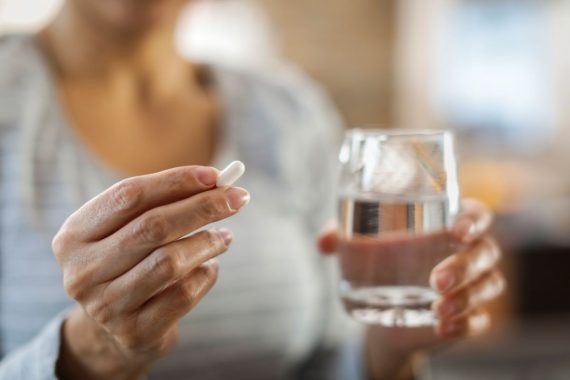GPs could be asked to take a greater role in the delivery of community Covid treatments for eligible vulnerable patients.
ICBs, which are being handed responsibility for community Covid treatments later this month (27 June), have been asked to work with GP practices and other primary care providers this month to set up local pathways.
Up until now, GPs have had little to do with the process, which was being led by Covid-19 Medicines Delivery Units (CMDUs).
Under the current system, vulnerable patients register their positive NHS lateral flow test result on the Government’s website andare automatically contacted by the CMDU to access treatments, except in some limited circumstances.
However, under the new framework patients will themselves have to contact NHS services to seek treatment if they test positive, which some GPs had suggested could create health inequalities.
In a primary care bulletin sent yesterday, NHS England suggested GPs and other primary care providers will be more involved in the treatment pathway.
It said: ‘To ensure patients access treatment promptly, ICBs will work with primary care and other providers, to develop local clinical pathways for oral antivirals and IV treatments. Pathways may differ locally and your ICB will contact you to confirm arrangements.’
South Staffordshire LMC chair Dr Manu Agrawal told Pulse the CMDU has worked well in his area, but this NHSE update about potential new pathways fits with the ‘basic principle that more and more is being given and moving towards GP practices and primary care’.
On the prospect of GPs being more involved in providing treatments, he said: ‘It’s not only the capacity, it’s also whether GP practices have the capability of doing this. As a GP – would we need training for this? Because we’ve not prescribed antivirals for a while.’
The bulletin also set out a requirement for GP practices who are not doing Covid vaccinations under the Enhanced Service specification to ‘share lists of eligible patients with their local commissioner where these patients cannot all be identified by national call/recall’.
NHSE said this will allow ICBs to ‘arrange alternative provision from another provider’, and practices are required to share this information as part of their contractual ‘duty of co-operation’.
The bulletin added: ‘Patients who cannot be identified nationally are likely to be immunosuppressed patients and housebound patients as well as patients who are six-months to four years old in a clinical risk group (as detailed in Table 4 of Chapter 14a of the Green Book), who qualify for the Comirnaty3 (THREE) Concentrate vaccination which will be available this Summer.’
In a letter to ICBs in March, NHSE medical director Professor Sir Stephen Powis said ICBs had 90 days to put plans in place for patients to access Covid medicines either through existing CDMUs or equivalent services.
He also highlighted the need for arrangements to ensure equitable access to treatment for eligible patients, particularly hard-to-reach groups.
Pulse October survey
Take our July 2025 survey to potentially win £1.000 worth of tokens














One of first things that happened with covid was it became a secondary care illness or manage on your own illness for many or rather as it was perceived by many with some or many practices directing all to secondary care. Perhaps this was the start of the massive fall in the populations loss of respect for primary care. But what has yet to be produced in easy access form is what drugs actually work for which groups in mild to moderate (non hypoxic ) people with covid . If a simple table could be produced why has it not been done ? Are ICB.s which are admin bodies the best to produce local guidelines and why does NHSE not produce one for the whole of England?